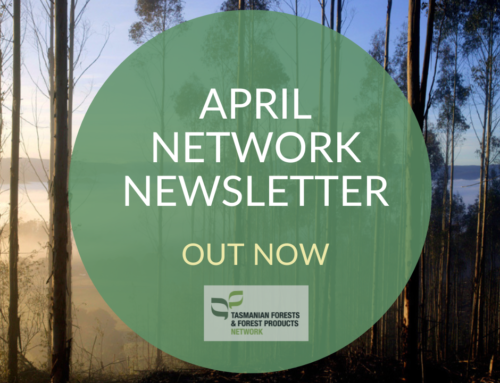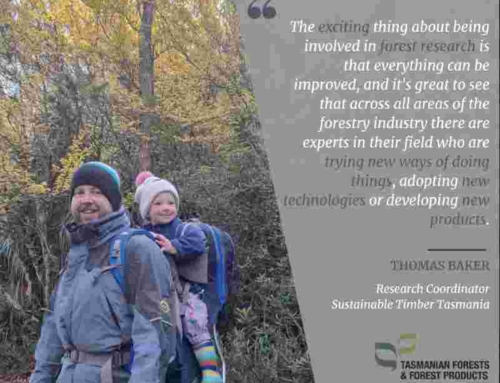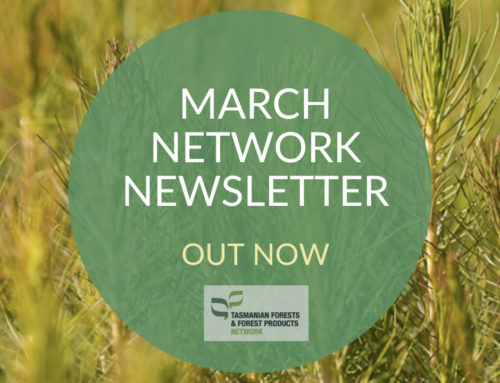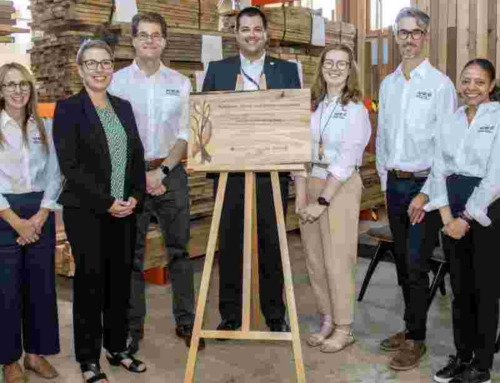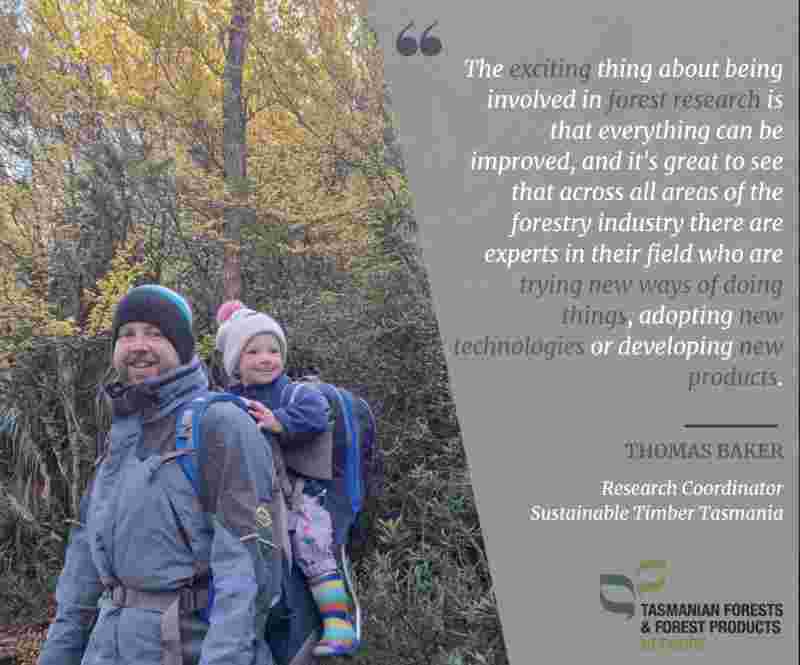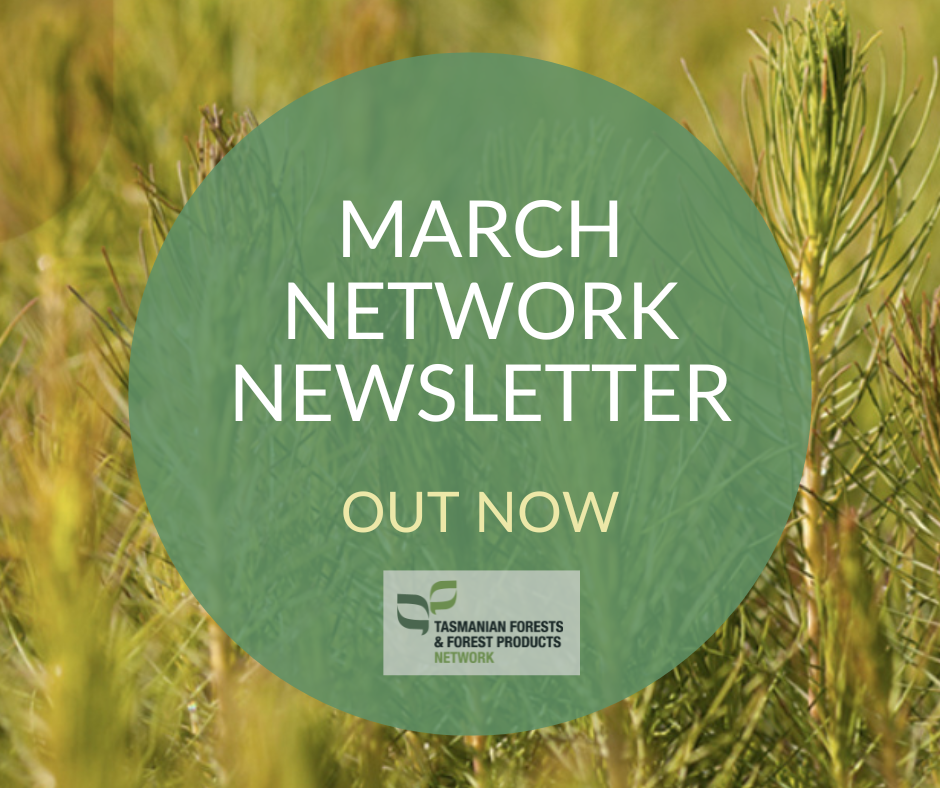TFFPN COVID-19 Communications Working Group
Progress Report
Background
This is a uniquely challenging moment in Tasmania as we face unprecedented health, social and economic impacts of COVID-19.
A number of measures have been implemented by Government, both State and Federal to stop the spread of the virus and the TFFPN (Network) is fully supportive of these.
This progress report details the action the Network has taken to communicate with and report on how the Forest Industry in Tasmania has responded to these measures to ensure safe and hygienic conditions for workers, while at the same time ensuring the forest and forest products industries can operate as an essential service to ensure this critical infrastructure during the pandemic .
The wood products industries supply a raft of critical products ranging from toilet paper and face masks to high quality wood products to aid in the construction industry. It is essential it is kept operating in Tasmania
Introduction
In response to this the Network established the COVID-19 Communications Working Group with membership including representatives from TTPB, PFT, FIAT, STT, Forico, AFCA, UTAS, Department of State Growth with the objectives of –
- Communication across the industry – how to operate safely through this period
- To provide other information to industry as required (i.e working from home, mental health, etc.)
- Feed information back to Government about how the industry is operating safely
The Network along with other organisations on the Group has implemented a number of strategies during this time in relation to these objectives including providing a weekly eBulletin to members to keep them informed and updated as to market changes and Government support available to the Forest Industry .
These also alert members a range of resources in adjusting to working from home, and most importantly keeping members connected with insights and strategies to assist with positive mental health when so many are physically isolated .
The Department of State Growth also produces a weekly Situation Report for the use of the Group which summarises the Current Situation, Critical Risks and Issues, and Current Response to impacts on the Forest Industry by COVID-19. This has been a valuable document to assist organisations keep members up to date .
Safety Survey
The Group also distributed a survey to a wide range of stakeholders to gain feedback on safety in the Tasmanian Forest Industry through the COVID-19 pandemic. The membership of the Group meant the survey was able to reach the full supply chain of the Tasmanian Forest Industry* and the results have greatly assisted the Group in targeting assistance and support.
Findings included – that over 86% of respondents find it very easy or somewhat easy to implement social distancing and safe hygiene work practices in their role, with a further 8% finding it neither easy nor difficult. Total 94%.
Over 82% are either extremely or very confident that they can continue to work safely through this period.
Only 1.4% said they were not so confident. Further, nearly 72% say they are extremely or very confident that their organisation can continue to operate safely and efficiently through this crisis. A further 26% are somewhat confident. Only 2.86% are not so confident.
Nearly 71% said they could continue to work this way for 3 months or more with a further 17% saying they could continue for two months. Nearly 60% are already working from home.
Also when asked about their information needs relating to COVIS-19 , only 5.7% said they needed more information on hygiene and social distancing.
(*The survey received 140 responses which, as a representative sample of the 5700 strong forest industry, provides approximately 80% confidence level with a 5%)
The Group has found this information of great assistance in shaping future communications to members, and assisting Government with any responses it may intend.
Employer feedback
The Group complemented the member survey with feedback from employers across the supply chain as to what initiatives they have taken to ensure workers are able to work safety so that the Forestry Industry, as an essential service, can continue operating through this period.
Some feedback includes:
This is not meant to be an exhaustive list but a summary of recurring themes in responses
Following Guidelines for social distancing –
- Guidelines well communicated for social distancing and hygiene
- Hand sanitizers and wipes readily available
- Pandemic Response Committee established
- Restriction of staff travelling together
- Increasing cleaning at all sites
- Additional personal protection equipment
- Option for older workers to self isolate
Working from Home –
- Office based staff working from home
- Safety assessments, resources employed (IT hardware, chairs, etc) on line systems connectivity and collaboration
- All staff working from home now. Offices closed to the public
- All meetings conducted through digital conferencing
- 40% staff working from home
Working in the Office –
- Office closed to visitors, working flexible arrangements, restricted numbers of employees in office at one time, increased cleaning
- Staff only attending office to collect equipment etc. printing, scanning mail.
Working on site/field
- In field – only one person in vehicle
- Contractors – providing information re managing worksites safely. Suspended external health and safety audit program,
- Contractors closed sites to visitors except for essential staff and service providers
- Increased provision of hygiene facilities equipment on site
- Restricted machinery to one operator
- Postpone farm/site visits to later in year and engage through digital means
- Review of contractor compliance and government requirements
- Separation of shifts in Mills
- Move from single to multiple shifts at Nursery and Laboratory
- 36% of staff working on site (in revised capacity)
- 24% working a combination of field and at home.
- A number of mills have closed temporarily to reorganise to ensure physical distancing. Expected to reopen end of April.
This feedback adds weight to the evidence that businesses in the forest industry are implementing best practice to keep workers safe and sites hygienic while at the same time ensuring business continuity and employment. This information is helpful for governments as well.
This Report will be updated as the Network COVID-19 Coms Group continue to engage with members and industry during the COVID-19 pandemic.
Therese Taylor

